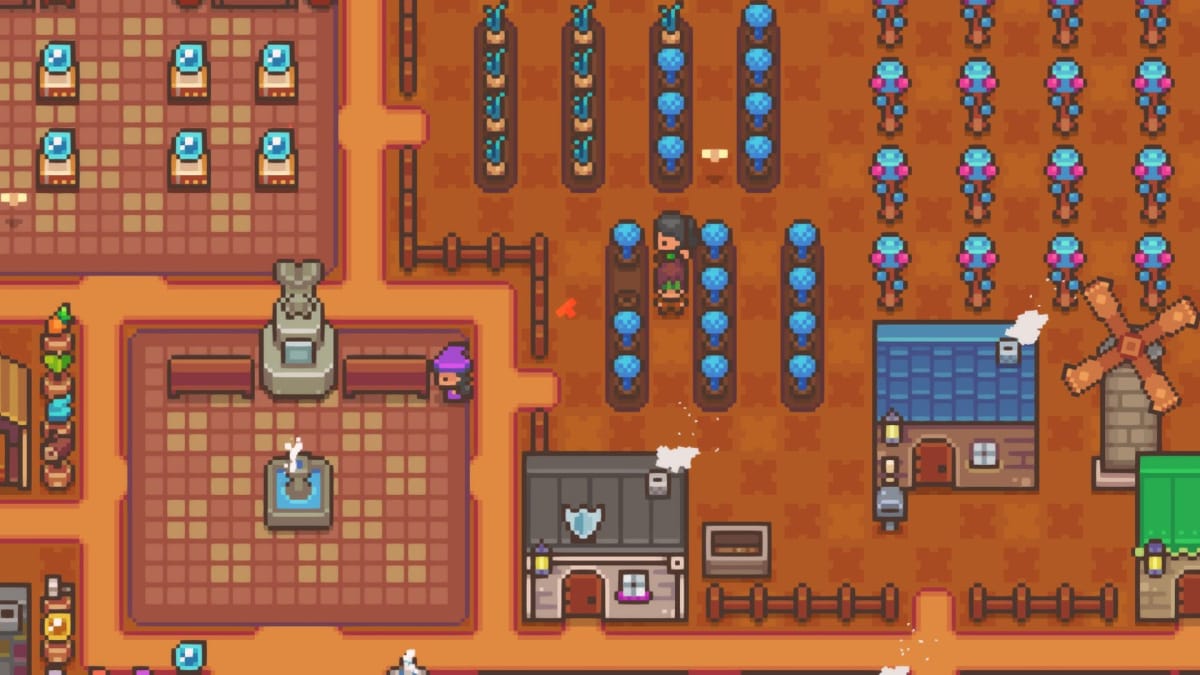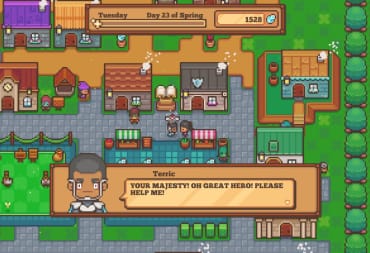Some games are all about a grand, epic adventure. In this Littlewood review, I'll be exploring a game that approaches the classic fantasy narrative from a different perspective: what happens when you've already saved the world?
In Littlewood, you've defeated the big bad in an unseen battle before the game begins. The conclusion of this climactic battle came with a downside, though — you've lost your memory. Instead, you've ended up in the town of Littlewood (or whatever you've decided to name it) with plans to settle down and build a new home for yourself, your closest friends, and a growing collection of outcasts and weirdos.
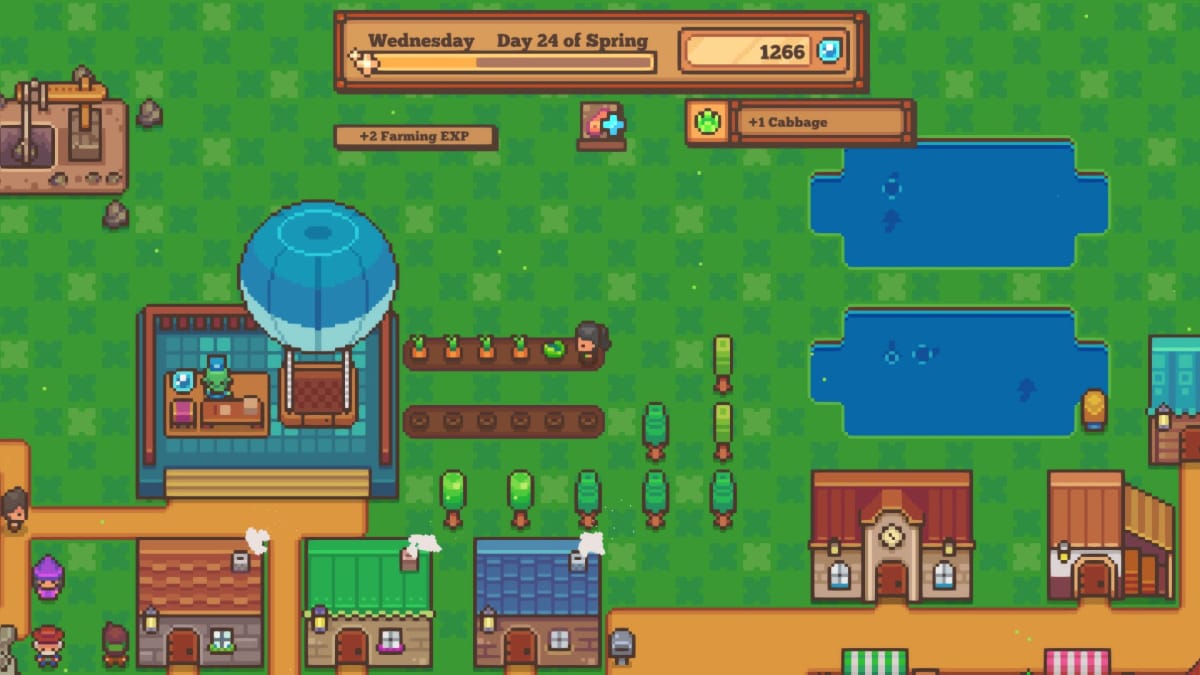
Slow and Steady
One of the enormous appeals of this game is its terrifically slow pace. There isn't any passage of time per se; instead, you have an energy bar that depletes as you complete certain actions. Once it's at the end, you ought to turn it for the evening. Should you try to do anything else, you'll pass out from exhaustion.
That's not to say there isn't any time pressure. There are random and planned events, whether it's a cow-catching contest or a particularly rare item at a merchant. Those might divert your attention from your original plans for the day, but those are rare exceptions to the rule.
Littlewood also has four distinct seasons. Some items are more commonly available in some seasons and that could determine how you'll spend your time. They'll always come around next year, though, and you'll always have something to do in the meantime.
There have certainly been some additions since I first previewed Littlewood earlier this year, but the fundamentals are the same: Littlewood might just be the perfect casual game.
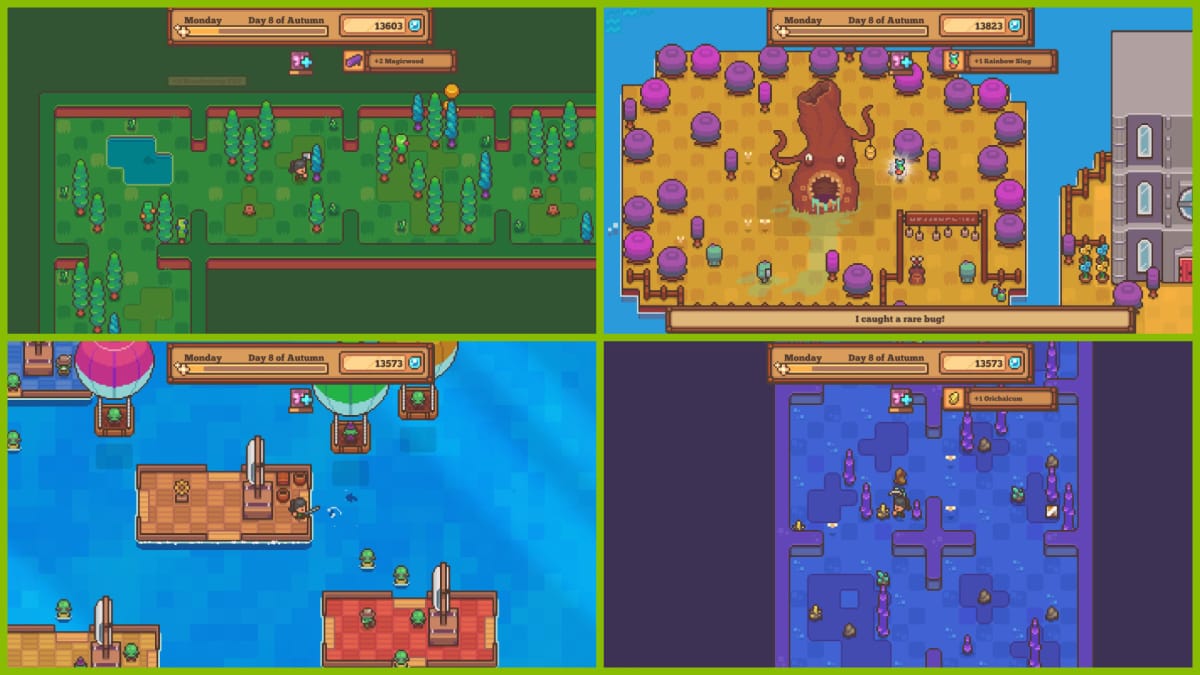
Littlewood: The Gathering
The vast majority of my Littlewood playthrough was spent on gathering. You need items to make the various things in the game, and you're going to have to collect most of them yourself.
Gathering abilities make up six of your ten skills: Gathering, Mining, Woodcutting, Bug Catching, Fishing, and Farming. Naturally, you advance each of these skills by performing the associated activities. Chop down a tree and your Woodcutting goes up by a bit. Pick some weeds and your Gathering level increases slightly.
Collecting these various goods is where players will likely first learn about buffs. The Coffee Shop is one of your first unlocks; it allows you to consume up to three special items a day, each of which will buff one of the six gathering skills. Buffs are a big part of Littlewood — if you can afford them.
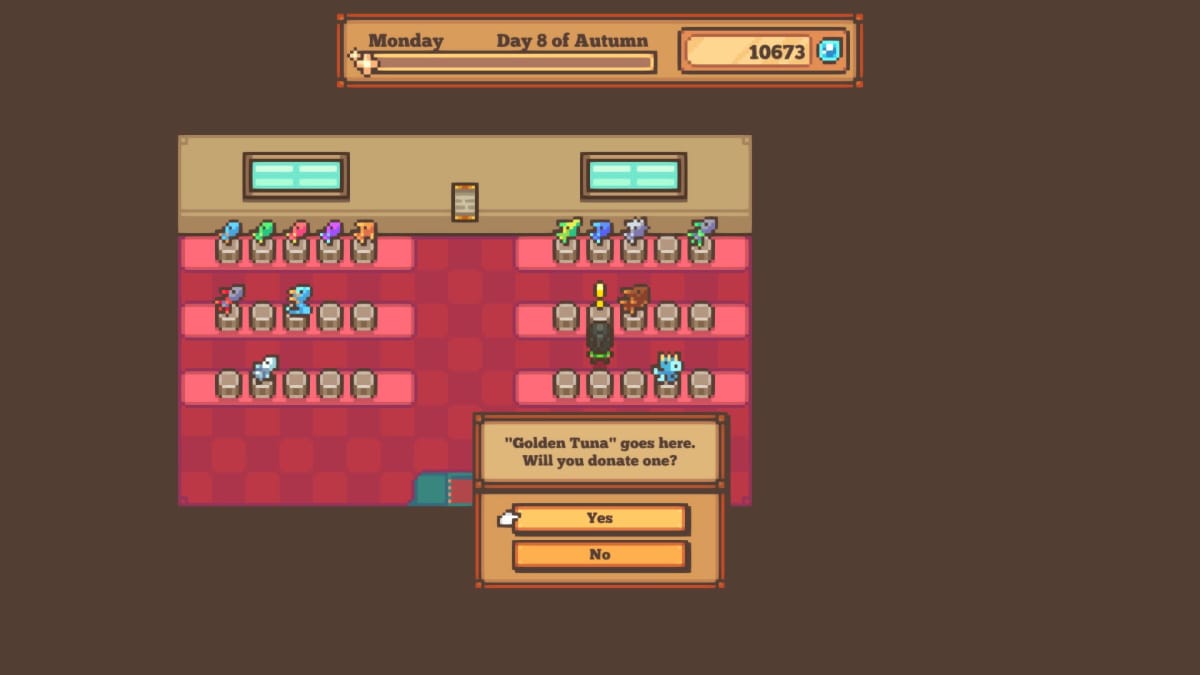
Fun and Profit
Nothing comes cheap in Littlewood. You might be the legendary hero, but you'll have to pay the bills at the end of the day.
You can earn Dewdrops (the game's currency) in a few different ways. The first and most obvious is by selling items in the marketplace (which also happens to advance your Merchanting skill.) You can also cook food in the Tavern or find chests while you're out exploring. Having a companion hanging out with you is a must; they'll randomly find Dewdrops as you further your work.
You'll invariably reinvest the vast majority of your earnings right back into the town. Major community buildings will require ten levels of upgrades apiece. You'll also likely need to buy fruit, animals, and various rare items for earning even more money or crafting more complex goods.
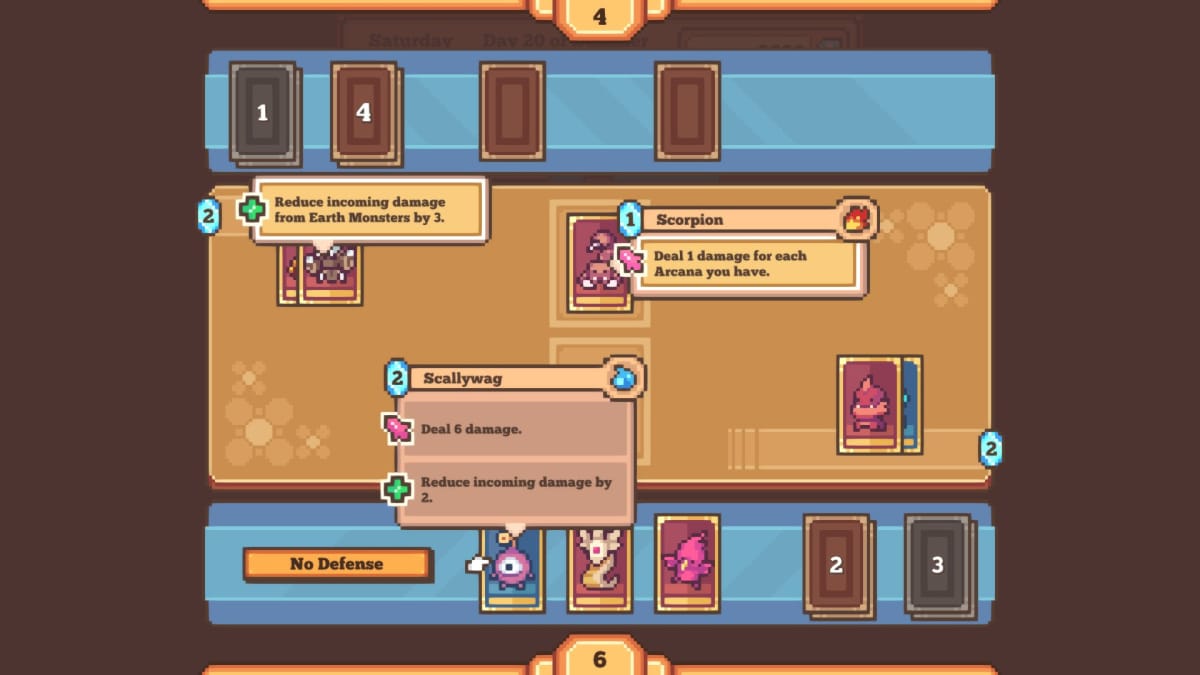
It's Time to D-D-D-D-Duel
One of the things I loved most in my Littlewood review was the sheer variety of things to do. I could spend a day catching bugs or fishing or delving into the Dust Caverns, but I also spent a good hour or two playing Tarott Monster.
Sean Young's SmashGames apparently didn't think that a roguelite life sim city builder farming RPG was enough — he also decided to throw in a card battle game called Tarott Monster just for funsies.
It certainly fits in with the story; all of those monsters you've defeated as the legendary hero have been sealed away into cards. Now, the people of the world engage in Tarott Monster duels for fun and profit. You can get started yourself once you unlock the Card Shop in the Port City Deluca and it makes for a surprisingly fun diversion.
There are 80 Tarott Monster cards in all, evenly split between five elements. You'll find some of them while exploring the world, but the vast majority will be won through duels. Each player fields a deck of ten cards.
Every card has an attack ability and either a defensive ability or passive ability. On your turn, you can play a card for 0–3 Arcana or build up your Arcana by discarding a card. On your opponent's turn, you can play a card to activate its defensive ability if it has one. On either turn, passive cards of the top-most discarded card can come into play.
Tarott Monster is almost entirely self-contained within Littlewood. Most of your rewards are either cosmetic items that you can use to decorate your town or more Tarott Monster cards. You don't have to play it, but you'll probably have fun giving it a try.
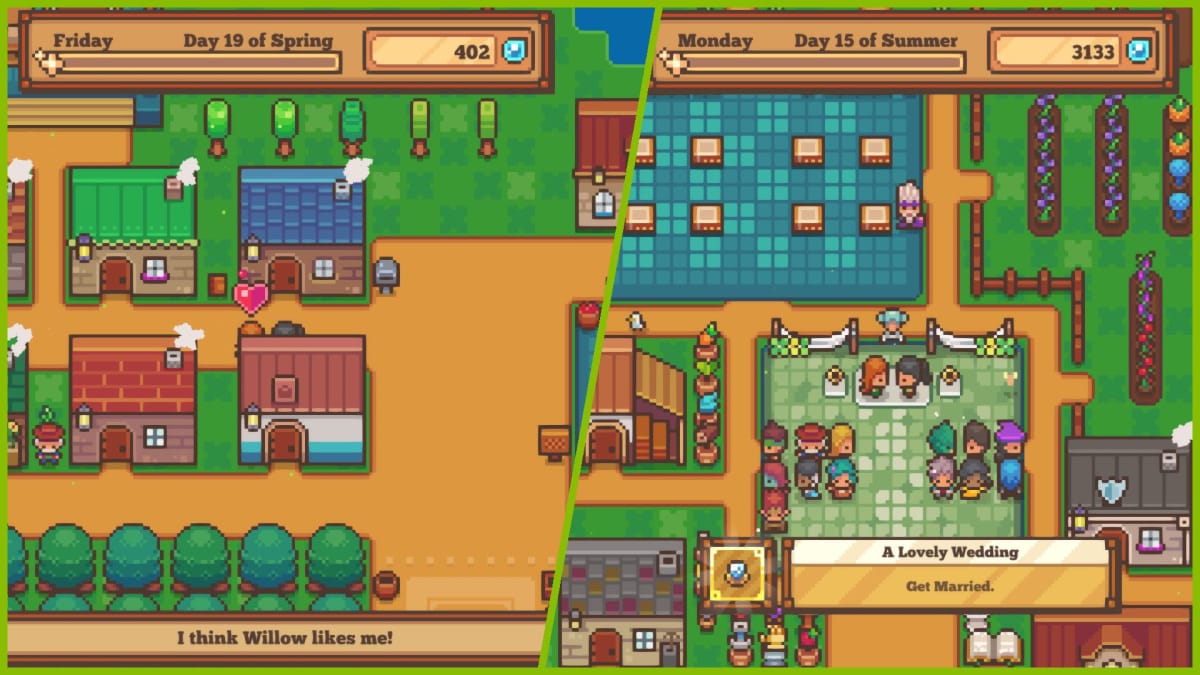
Building a Better World
Ultimately, the biggest part of Littlewood is rebuilding a shattered world practically from scratch. This is the task that you'll be working toward throughout the game, little by little.
The focus of the first few hours is on unlocking a dizzying amount of buildings. New people will come to town and you'll need to build them a home. Then, most of those new villagers will give you the blueprints to build a new community building.
Community buildings will need the aforementioned upgrades. Villager homes, however, are another story — these buildings need furniture. You'll have to buy or find the blueprints and then spend resources to build it, to boot. I have yet to completely finish a single villager home; I've had poor luck in finding blueprints for some of the items. Some of the materials used to build the furniture are also quite rare.
Villager homes aren't the only thing you'll be building, mind. You also have to build crops and trees and shape the land in other ways. Players can also erect special statues and buildings that will give them various buffs such as increased sale prices or better drop chances. Littlewood gives players a lot of room to make the town of their dreams.
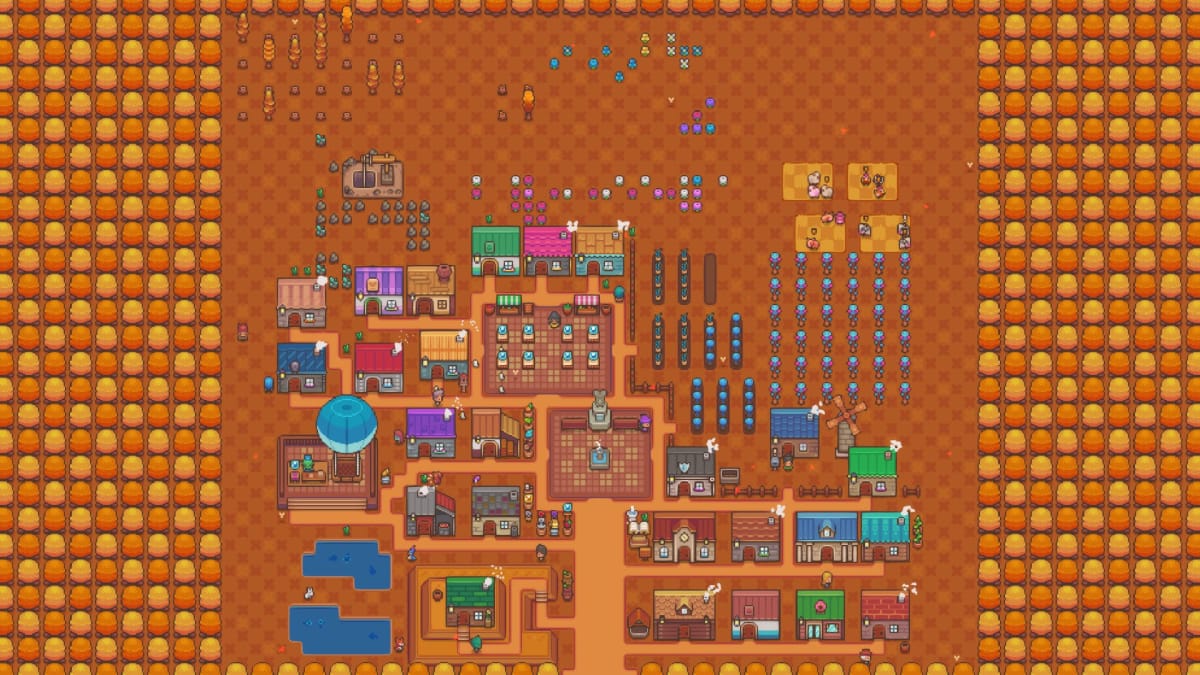
Littlewood Review | Final Thoughts
Littlewood combines so many genres that it's honestly hard to figure out. There are farming RPG and life sim elements, sure, but you also have a dash of a roguelike in there, too. Lest we forget, a Dark Cloud-style city builder component makes up a good chunk of the game as well.
In the course of my Littlewood playthrough, I've found myself happy to return to a super-relaxing title that's perfect for bite-sized sessions or marathon gaming nights. If you like any of these genres, you'll probably love Littlewood. If you've never played a game like this, then Littlewood would be a great place to start.
TechRaptor reviewed Littlewood on PC via Steam with a code provided by the publisher.
Review Summary
Pros
- Bite-sized Gameplay
- A Good Variety of Activities
- Tarott Monster is a Fun Bonus
- Lovable Characters
Cons
- Luck is a Big Factor for Some Items
- Dialogue Could Use More Variety
Have a tip, or want to point out something we missed? Leave a Comment or e-mail us at tips@techraptor.net
